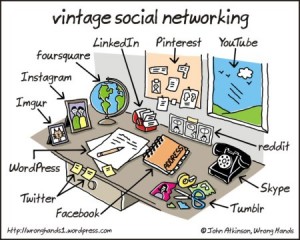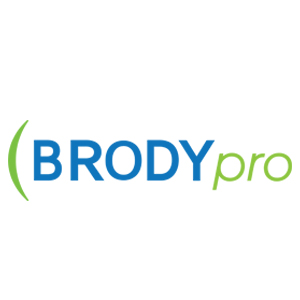 In my previous post, I mentioned that any communication online has the potential to go viral.
In my previous post, I mentioned that any communication online has the potential to go viral.
With greater numbers of professionals using social media sites for networking purposes, it’s even more important that they conduct themselves with exemplary etiquette.
Social media isn’t just here to stay, it’s relevant and effective.
Here are six rules for using social media effectively:
1. Do connect online, particularly on LinkedIn, the best business-to-business site for professionals. The key word in that sentence is “professional.” Employers, head hunters and potential clients are searching for great hires and vendors online, so why not take advantage of that with a professionally worded profile, professional-looking head shot — and lose the silly avatar.
On the other hand, if you would not do or say something during a job interview, if you would not say it in a board meeting, or if you would not whisper about it by the watercooler — don’t do it on LinkedIn, either … or on any other social media site for that matter!
2. Do check out people’s profiles before connecting with them. It’s OK to turn down a request to connect, simply by ignoring it. Don’t respond with negative comments or ridicule the person seeking to network. Just ignore the post and move on.
3. Do engage in LinkedIn groups pertaining to your industry or areas of interest — but DO be careful what you say. Never come across as arrogant, condescending, or a know-it-all. And, for heaven’s sake, don’t badmouth others online. It’s your reputation at stake, and all it takes is one bad post to go viral and reach thousands or more — and your name is now the subject of ridicule not respect.
Have you heard of “twunking?” For those who don’t know this term, this relatively new word to the English language refers to tweeting while drunk. You may laugh, but this happens more than you think. So, rule #4 …
4. Don’t engage on social sites while impaired. After all, you wouldn’t drive while impaired, right? Who knows what might come out of your mouth (or your fingers may type). More importantly, who knows who might see your comments and repost them — increasing your audience and the catastrophic results that one bad Tweet or Facebook post can have. Who knows what damage you might do to your career?
Here’s another example of the damage that thoughtless social media posts can cause: A man won a lawsuit in court, with an $80,000 award for damages. Along with the award, he had to sign a confidentiality agreement, which he promptly broke — by telling his daughter all about the settlement. Which she promptly posted to Facebook. The results? Because he broke the agreement and the details of the award went public, the court took it away from him.
Are you starting to see the dangers of social media?
Using social media to network and promote your business or service doesn’t have to be dangerous at all, if you conduct yourself professionally, appropriately, and thoughtfully.
I suspect that people still don’t realize just how public their social media accounts really are — which leads me to rule number five for using social media …
5. Keep private details of your life private for any work-related Facebook, Twitter, Pinterest, etc., accounts or even on your LinkedIn profiles.Just consider that if you wouldn’t want HR or your manager to know the details, why on Earth would you post it publicly online? Keep your communications and posts in a professional vein, particularly on LinkedIn, and especially if you are job-hunting or looking for a promotion. No one wants to hear about the epic party you attended on Saturday night, or how wasted you got. The same goes for posting related personal photos that really don’t belong online let alone in a scrapbook!
Your social media connections want to know whether you are worth hiring, worth giving more responsibility, worth trusting and worth connecting with.
6. Whenever possible, try to add value with your posts, sharing and retweeting valuable career-related advice and articles you find online. There’s most definitely a bit of “What’s in it for me” going on, too — when deciding whether to join someone’s network and follow their commentary. So, be a go-to trusted resource and someone on Twitter that others will post #FF on Friday (encouraging their followers on a Friday to Follow you).
Adding value doesn’t mean complaining about your career and perceived injustices. Never, ever complain about your job, your manager, your CEO, or your co-workers online. It can very easily come back and bite you in the butt with a demotion or pink slip. Word will get around, even if your post doesn’t go viral.
Offering thoughtfully posted, relevant commentary that provides value to others is the best social media strategy of all.
When it comes to communicating online, stay professional and remember what my mother always used to say: “If you have nothing nice to say, then don’t say anything at all.”
